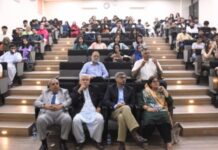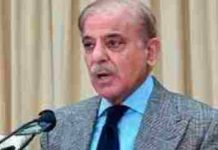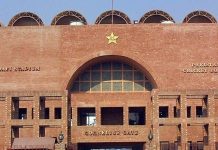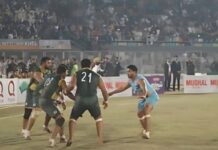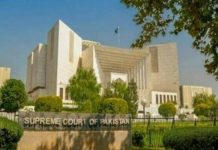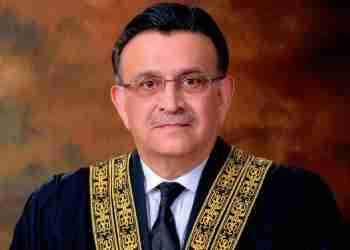ISLAMABAD, Jun 07 (NNI): The Supreme Court has clubbed together the petitions against the SC (Review of Judgments and Orders) Act, 2023 and the Election Commission of Pakistan’s plea seeking review of the court’s April 4 order regarding holding of election in Punjab on May 14.
The court made this decision on Wednesday while hearing the review petition of the Election Commission related to the Punjab polls.
A three-judge bench headed by Chief Justice Umar Ata Bandial and comprising Justice Ijaz-ul-Ahsan and Justice Munib Akhtar heard the case.
During previous hearing of the ECP review petition, the attorney general for Pakistan told the Supreme Court that the SC (Review of Judgments and Orders) Act, 2023 had become law, enlarging the scope of the court by giving a right to appeal under Article 184(3). Hearing this, the court had adjourned the case, saying that the new law would be discussed first.
At the outset of Wednesday’s hearing, the chief justice remarked that a plethora of petitions have been landed in the apex court against the new Act and ordered to club all these petitions together along with the review petition of the ECP. He ordered to fix these petitions for hearing on Tuesday.
The top judge remarked that the court would complete the hearing of the Punjab poll case first and would try to decide the ECP review petition as soon as possible.
The court also issued notices to the federal government, AGP Mansoor Usman Awan, the president through the principal secretary, ministry for parliamentary affairs and senate secretariat.
The chief justice remarked that the court would hear the pleas against the SC (Review of Judgments and Orders) Act, 2023 and the Punjab Election review petition together.
The Pakistan Tehreek-i-Insaf lawyer Ali Zafar argued that the Supreme Court (Review of Judgments and Orders) Act is inconsistent with the Constitution, Clause 5 of which says that there shall be a right of appeal against the decision of Clause 3 of 184. He said in his opinion, the Clause 5 could not be applied to the Punjab elections. He said that he was sure that the court would declare this law null and void.
If the law is upheld, then a 5-member bench will be constituted and the review petition against the Punjab elections should be heard under the old law.
The chief justice remarked: “The election in Punjab was decided on May 14, but that time cannot be brought back. What will be the results? After the events of May 9, the Election Commission’s lawyers could not answer with certainty that the elections will be held on October 8. Extensions were given in the past, there are examples of this, we have to see that too.”
The chief justice went on to say: “Elections are a national issue. It is not possible to implement the decision of May 14. But this decision has become history. The court decision will remain in history that holding elections in 90 days is mandatory.”
Lawyer Ali Zafar said that on May 15, he felt that the constitution died. The people of two provinces are deprived of public representation in the assemblies, he added.
About the new Act, the lawyer said that the legislation was passed in 5 minutes. Right of appeal is a good thing, but the right of appeal should be provided by constitutional amendment, he argued.
He said that the constitution was changed by legislation. The word appeal has been in use since the 17th century. In 1980, the Full Court sat and determined the powers of revisiting the pleas. The Constitution was amended by changing the word of ‘revisit.
CJP Bandial remarked: “It’s also a good thing. Clause 3 of Article 184 gave limited right of appeal. Another good thing is that the government and the government agencies have decided to talk through the court. This is great, it shows realism. At first, protests were held at the door of the Supreme Court. There are consequences for this. Protesting at the court gate is like obstructing the delivery of justice,” the top judge remarked.
The attorney general asked the court that Ali Zafar should make a request so that a notice should be issued to him and then he should be heard.
Later, the court issued notices to the parties including the attorney general and adjourned the hearing of the case till next Tuesday.
The court said that it would hear the case on a daily basis from Tuesday and take a decision.
It should be noted that the Supreme Court had ordered elections to be held in Punjab on May 14, on which the Election Commission filed a review petition on May 3. The federal government, caretaker Punjab government and Election Commission along with PTI have submitted their responses in the case. NNI











